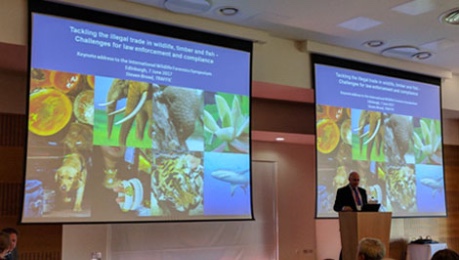Tuesday 6th June 2017, 11:40am
Wildlife crime is the focus of a new partnership between the University of Edinburgh and the Scottish Government. It aims to boost the use of forensic science in tackling the problem.

The partnership creates formal ties between the Scottish Government’s Wildlife DNA Forensics unit and the Conservation Genetics research unit at the Royal (Dick) School of Veterinary Studies.
Forensic science plays a key role in investigating illegal trade routes and the poaching of wild animals.
It can provide vital evidence that an offence has been committed and help enforcement agencies pursue prosecutions.
Experts explored how scientists can best support crime investigations at home and abroad – which include illegal logging, fishing and wildlife trade, as well as animal persecution.
“The new wildlife forensics development programme builds on Edinburgh’s strong reputation for biosciences, taking a progressive approach that will strengthen the links between enforcement, policy and forensics.”
Roseanna Cunningham, Environment Secretary, Scottish GovernmentThe partnership was announced at the Society for Wildlife Forensic Science’s annual symposium in Edinburgh, which is being held outside the US for the first time.
“The fight against wildlife crime in all its forms requires coordinated efforts from multiple partners to reduce incentives and demand, and to investigate and prosecute criminal activity.”